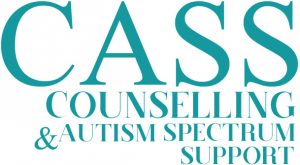When looking for a counsellor it is extremely important to check what specific training the therapist has in neurodiversity and what specialist supervision do they receive in order to work ethically with neurodiversity. All our CASS counsellors are members of the British Association for Counselling & Psychotherapy (bacp) and we work within the ethical framework required.
For instance, the principle of beneficence means acting in the best interests of the client based on professional assessment. It directs attention to working strictly within one’s limits of competence and providing services on the basis of adequate training or experience.
https://www.bacp.co.uk/media/2176/bacp-ethical-framework-for-the-counselling-professions.pdf
The term neurodiversity refers to differences in sociability, listening, concentration, mood, and other mental processes within the human brain. Various brain tests have found that individuals with variations in perception or reasoning are “wired” differently from their contemporaries. In other words, some children are born with brains that uniquely think, understand and process data.
Neurotypical Counsellor:
A specialist area of counselling focused on working with people with neurological traits is the Neurodiverse Counsellor. Neurodiverse counsellors are experienced and qualified to support people with neurodiverse traits and offer therapies that allow a person to work towards fully functional independence.
Neurotypical practitioners undergo comprehensive instruction. They use curricula developed or accepted by neurodivergent practitioners from neurodivergent instructors. Neurodivergent professionals must be well-versed in the neurodiversity model, critical and philosophy fields.
Never try to heal the client of being neurodivergent. The task is to support the client in depression and anxiety, not for autism, because the counsellor has an autistic client suffering from anxiety and depression. Professionals who fully grasp the concept of neurodiversity would no more seek to “treat” the autism of a client than aim to “treat” the homosexuality of a client or “treat” the participation of a client in an ethnic minority group.
In certain circumstances and particularly when we working with children and vulnerable adults Neurotypical therapists and counsellors, collaborate with multidisciplinary team members. However, confidentiality for our clients is paramount and discussed before collaborating with other professionals such as speech and language therapists, physical therapists, dieticians, nurses, and physicians.
What counselling does more than anything is gives our clients the space to talk without fear of anyone else knowing except the counsellor.
References:
Lee, M. (2020, November 13). The role of the physiotherapist in learning disabilities: Communication and health literacy. Retrieved February 2021, from https://www.physio-pedia.com/The_Role_of_the_Physiotherapist_in_Learning_Disabilities:_Communication_and_Health_Literacy
Meer, D. (2020, March 04). Affirming neurodiversity in therapy and education. Retrieved February, 2021, from https://www.neurodiversecounseling.com/blog/2020/2/10/affirming-neurodiversity-in-therapy-and-education
Murphy, S. (2020, October 17). Neurological physiotherapy in private practice. Retrieved February 2021, from https://www.physio-pedia.com/Neurological_Physiotherapy_in_Private_Practice
Neurotypical psychotherapists and neurodivergent clients. (2014, December 3). Retrieved February, 2021, from https://neurocosmopolitanism.com/neurotypical-psychotherapists-and-neurodivergent-clients/
What is NEURODIVERSITY? Definition and Resources: Wake Forest University. (2020, August 07). Retrieved February 2021, from https://counseling.online.wfu.edu/blog/what-is-neurodiversity/


